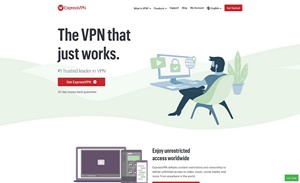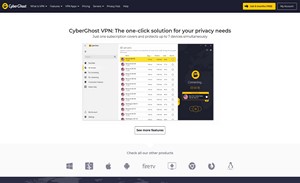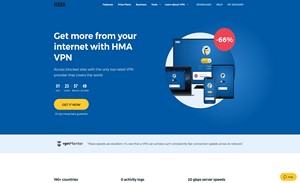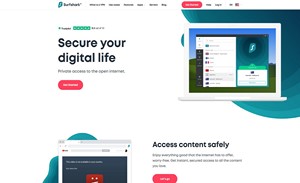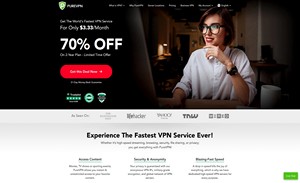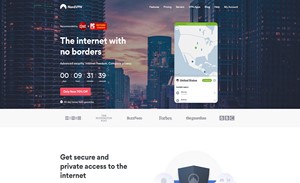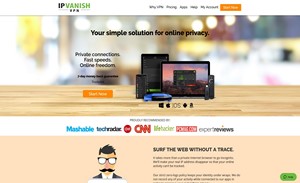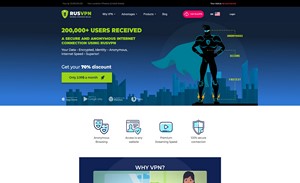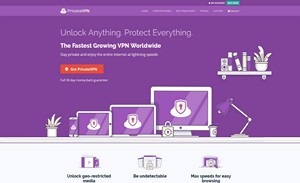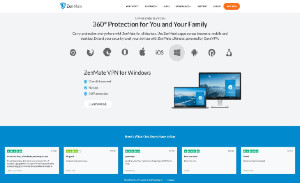Best Cheap VPN Services of 2023
What is VPN Services?
A Virtual Private Network (VPN) is a type of technology that allows users to securely access a private network and share data remotely through public networks. This allows users to securely access a private network and share data remotely through public networks. VPNs use a combination of encryption and authentication to secure data transmitted over the internet.
There are two main types of VPNs: remote access and site-to-site. Remote access VPNs allow users to securely access a private network from a remote location, while site-to-site VPNs connect multiple private networks together over a public network.
VPNs are commonly used by businesses to protect sensitive data and provide secure remote access to employees. They are also used by individuals to protect their internet connection and access content that may be blocked in their geographic location.
One of the main benefits of using a VPN is that it encrypts the data transmitted between the user's device and the VPN server, making it difficult for anyone to intercept and read the data. This is especially important when using public Wi-Fi networks, which are often unsecured and vulnerable to hacking.
Another benefit of using a VPN is that it can help to bypass internet censorship and access content that may be blocked in a specific geographic location. This can be useful for individuals living in countries with strict internet censorship laws, or for businesses that need to access resources hosted in another country.
VPNs can also be used to protect against online tracking and surveillance. By routing internet traffic through a VPN server, users can make it more difficult for websites and advertisers to track their online activity.
There are many different VPN services available, each with their own features and pricing plans. Some popular VPN services include NordVPN, ExpressVPN, and Private Internet Access. These services offer various features such as multiple server locations, ad-blocking, and the ability to connect multiple devices to the VPN at the same time.
When choosing a VPN service, it is important to consider the security and privacy policies of the service. It is also important to ensure that the VPN service supports your specific needs, such as the ability to access content that may be blocked in your geographic location.
It's also important to keep in mind that while VPNs provide an added layer of security and privacy, they are not a replacement for other security measures such as anti-virus software and firewalls. It is always a good idea to use a VPN in conjunction with other security measures to ensure maximum protection.
In conclusion, VPN services provide a way to securely access a private network and share data remotely through public networks. They use a combination of encryption and authentication to secure data transmitted over the internet, and provide many benefits such as encryption of data, bypassing censorship, protecting against online tracking and surveillance, and enabling access to content that may be blocked in a specific geographic location. It is important to choose a VPN service that meets your specific needs and has a good privacy and security policy.
Top 10 VPN Services
1. ExpressVPN is a premium VPN service that offers fast and secure connections, a wide range of server locations, and strong encryption to protect users' data and online activity. It uses the OpenVPN protocol and AES-256 bit encryption to ensure that all data transmitted over the internet is secure. ExpressVPN also offers a split-tunneling feature, which allows the user to choose which apps or websites use the VPN connection, and which use the regular internet connection. This allows users to stream content while still protecting their online activity. ExpressVPN also offers a kill switch feature, a strict no-logs policy, and a 30-day money-back guarantee.
2. CyberGhost VPN is a popular VPN service that offers a wide range of server locations, strong encryption, and a user-friendly interface. It uses the OpenVPN, IKEv2, and WireGuard protocols and AES-256 bit encryption to ensure that all data transmitted over the internet is secure. CyberGhost VPN also offers a feature called "NoSpy Servers", which are servers that are owned and operated by CyberGhost themselves. This ensures that no third parties have access to users' data. CyberGhost VPN also offers a kill switch feature, a no-logs policy, and a 45-day money-back guarantee. It also offers a feature that allows the user to choose a specific server based on the intended use, such as streaming or torrenting.
3. HideMyAss is a well-known VPN service that offers a wide range of server locations, strong encryption, and a user-friendly interface. It uses the OpenVPN, L2TP, and PPTP protocols and AES-256 bit encryption to ensure that all data transmitted over the internet is secure. HideMyAss also offers a feature called "IP Stickiness", which ensures that the user's IP address remains constant, even if the connection is lost. This is useful for users who need to access websites or services that require a specific IP address. HideMyAss also offers a kill switch feature, a 30-day money-back guarantee, and a feature that allows the user to choose a specific server based on the intended use, such as streaming or P2P.
4. SurfShark is a fast-growing VPN service that offers a wide range of server locations, strong encryption, and a user-friendly interface. It uses the OpenVPN, IKEv2, and WireGuard protocols and AES-256 bit encryption to ensure that all data transmitted over the internet is secure. Surfshark also offers a feature called "CleanWeb", which blocks ads, trackers, and malware. This feature also blocks unwanted pop-ups and phishing attempts, and also protects from malware and viruses. Surfshark also offers a kill switch feature, a strict no-logs policy, and a 30-day money-back guarantee. It also allows an unlimited number of simultaneous connections with one account.
5. PureVPN is a VPN service that offers a wide range of server locations, strong encryption, and a user-friendly interface. It uses the OpenVPN, L2TP, and PPTP protocols and AES-256 bit encryption to ensure that all data transmitted over the internet is secure. PureVPN also offers a feature called "Internet Kill Switch", which ensures that the user's internet connection is cut off if the VPN connection is lost. This ensures that the user's online activity is not exposed if the VPN connection is lost. PureVPN also offers a strict no-logs policy, a 31-day money-back guarantee, and a feature that allows the user to choose a specific server based on the intended use, such as streaming or P2P.
6. NordVPN is a premium VPN service that offers fast and secure connections, a wide range of server locations, and strong encryption to protect users' data and online activity. It uses the OpenVPN, IKEv2, and WireGuard protocols and AES-256 bit encryption to ensure that all data transmitted over the internet is secure. NordVPN also offers a feature called "Double VPN", which routes users' internet traffic through two servers instead of one, providing an extra layer of encryption and security. NordVPN also offers a kill switch feature, a strict no-logs policy, and a 30-day money-back guarantee. It also offers a feature that allows the user to choose a specific server based on the intended use, such as streaming or P2P. Additionally, NordVPN also has a feature called "CyberSec" which is a malware and ad-blocking feature that protect the user from unwanted webpages and pop-ups.
7. IPVanish is a premium VPN service that offers fast and secure connections, a wide range of server locations, and strong encryption to protect users' data and online activity. It uses the OpenVPN, L2TP, and PPTP protocols and AES-256 bit encryption to ensure that all data transmitted over the internet is secure. IPVanish also offers a feature called "Split Tunneling", which allows users to choose which apps or websites use the VPN connection, and which use the regular internet connection. This feature allows users to stream content while still protecting their online activity. IPVanish also offers a kill switch feature, a strict no-logs policy, and a 7-day money-back guarantee.
8. RusVPN is a VPN service that offers a wide range of server locations and strong encryption to protect users' data and online activity. It uses the OpenVPN protocol and AES-256 bit encryption to ensure that all data transmitted over the internet is secure. RusVPN also offers a feature called "DNS Leak Protection" which ensures that the user's DNS requests are routed through the VPN, not the regular internet connection, providing an extra layer of security. RusVPN also offers a kill switch feature and a strict no-logs policy.
9. PrivateVPN is a VPN service that offers a wide range of server locations, strong encryption, and a user-friendly interface. It uses the OpenVPN, L2TP, and PPTP protocols and AES-256 bit encryption to ensure that all data transmitted over the internet is secure. PrivateVPN also offers a feature called "Zero-logs policy" which means that they don't keep any logs of the user's online activity or connection data. PrivateVPN also offers a kill switch feature, a strict no-logs policy, and a 30-day money-back guarantee. It also allows up to 6 simultaneous connections with one account.
10. Zenmate is a VPN service that offers a wide range of server locations, strong encryption, and a user-friendly interface. It uses the OpenVPN, L2TP, and PPTP protocols and AES-256 bit encryption to ensure that all data transmitted over the internet is secure. Zenmate also offers a feature called "Smart Locations" which allows the user to automatically connect to the fastest and closest server based on their location. Zenmate also offers a kill switch feature, a strict no-logs policy, and a 30-day money-back guarantee. It also offers a feature that allows the user to choose a specific server based on the intended use, such as streaming or P2P. It also offers browser extensions for Chrome, Firefox, and Opera, making it easy to secure your browsing experience.
FAQ / What is the best FREE VPN?
It is difficult to determine the best free VPN as different users have different needs and preferences. However, some popular free VPNs that are generally well-reviewed include:
1. TunnelBear: This is a free VPN that offers a limited amount of data per month (500MB). It is known for its user-friendly interface and easy setup process.
2. ProtonVPN: This is a free VPN that has a strict no-logs policy and offers unlimited data usage. However, the free version has a slower speed and limited server options.
3. Windscribe: This is a free VPN that offers a limited amount of data per month (10GB). It is known for its fast speeds and easy setup process.
4. Hide.me: This is a free VPN that offers a limited amount of data per month (2GB). It is known for its fast speeds and easy setup process.
5. Hotspot Shield: This is a free VPN that offers a limited amount of data per month (500MB). It is known for its fast speeds and easy setup process.
It's worth noting that free VPNs often have some limitations such as limited data, slower speeds and fewer server options compared to paid VPNs. They may also have weaker security measures, and may be more susceptible to data breaches, or might collect and sell user data for revenue. This can be a concern for users looking for the highest level of privacy and security.
FAQ / Do I need a VPN?
Whether you need a VPN depends on your specific needs and concerns. Here are a few reasons why you might consider using a VPN:
1. Security: A VPN encrypts your internet connection, making it more difficult for hackers or other malicious actors to intercept your data. This is especially important when using public Wi-Fi networks, which are often unsecured and vulnerable to hacking.
2. Privacy: A VPN can help to protect your online privacy by masking your IP address and making it more difficult for websites and advertisers to track your online activity.
3. Bypassing censorship: A VPN can help you to bypass internet censorship and access content that may be blocked in your geographic location. This can be useful for individuals living in countries with strict internet censorship laws, or for businesses that need to access resources hosted in another country.
4. Streaming: A VPN can help you to access streaming content that may not be available in your geographic location by allowing you to connect to a server in a different country.
5. P2P: Some VPNs allow P2P (peer-to-peer) file sharing and support the use of BitTorrent, which can be useful for users who want to download and share files securely.
If you are concerned about your online security and privacy, or need to access content that may be blocked in your geographic location, then a VPN may be a good option for you. However, if you only use the internet for general browsing and do not engage in activities that may put you at risk, the use of a VPN may not be necessary.
FAQ / Types of VPN Services
There are several types of VPN services, each with their own unique features and capabilities. Here are some of the most common types:
1. Remote-access VPN allows users to connect to a remote network, such as a company's network, from a remote location. This type of VPN is commonly used by telecommuters and other remote workers to access a company's resources.
2. Site-to-site VPN allows different networks to connect to each other, such as connecting a company's headquarters to its branch offices. This type of VPN is commonly used by organizations with multiple locations.
3. Consumer VPN is designed for individual users and is commonly used to protect personal online activity, bypass internet censorship, and access streaming content that may not be available in a specific geographic location.
4. Mobile VPN is designed for mobile devices and is commonly used to protect personal online activity and provide secure access to a company's resources while using a mobile device.
5. Cloud VPN allows users to connect to a virtual network that is hosted in a cloud environment. This type of VPN is commonly used by organizations that want to connect their on-premises resources to resources hosted in a cloud environment.
6. P2P VPN is designed specifically for peer-to-peer file sharing and is commonly used by users who want to download and share files securely.
7. Double VPN route the users' internet traffic through two servers instead of one, providing an extra layer of encryption and security.
8. No-log VPN: is specifically designed to protect the users' privacy by not keeping any logs of their online activity or connection data.
It's important to note that not all VPN services offer all of these features and capabilities, so it's important to carefully research different VPN services and choose one that meets your specific needs and requirements.
FAQ / What’s the difference between a business VPN and a personal VPN?
Business VPNs and personal VPNs have some similarities, but they are designed for different purposes and have some key differences.
Business VPNs are typically used by organizations to provide secure remote access to a company's internal network and resources, such as email, file servers, and databases. They are also used to connect multiple company locations together. Business VPNs often have more advanced security features, such as two-factor authentication, and may be managed centrally by an IT department. They may also have usage and access policies in place, and they often support a larger number of users.
Personal VPNs are typically used by individuals to protect their personal online activity, such as browsing, shopping, and banking. They can also be used to bypass internet censorship, access streaming content that may not be available in a specific geographic location, and to protect personal data when using public wifi. Personal VPNs are usually less complex to set up and manage, and they often have fewer advanced security features.
In summary, Business VPNs are meant to be used by organizations to protect their internal network and resources and connect different company locations together. Personal VPNs are intended for individuals to protect their personal online activity, bypass internet censorship and access streaming content that may not be available in a specific geographic location.
FAQ / What’s the difference between a proxy and a VPN?
A proxy and a VPN are both technologies that can be used to protect your online activity and conceal your IP address, but they work in different ways and have some key differences.
A proxy is a server that acts as an intermediary between your device and the internet. When you connect to a proxy, your traffic is routed through the proxy server before it reaches the internet. This can help to conceal your IP address and location, and it can also be used to bypass internet censorship and access content that may be blocked in your geographic location. However, a proxy server does not encrypt your traffic, so your online activity is not as secure as it would be with a VPN.
A VPN (Virtual Private Network) is a technology that creates a secure and encrypted connection between your device and the internet. When you connect to a VPN, your traffic is routed through an encrypted tunnel, which helps to conceal your IP address and location, and it also makes it more difficult for hackers or other malicious actors to intercept your data. A VPN can also be used to bypass internet censorship and access content that may be blocked in your geographic location. Additionally, VPNs also encrypt your traffic, which provides a higher level of security and privacy than a proxy.
In summary, a proxy server can help to conceal your IP address and location and access content that may be blocked in your geographic location, but it does not encrypt your traffic. A VPN encrypts your traffic and provides a secure and encrypted connection between your device and the internet, which provides a higher level of security and privacy than a proxy.
FAQ / Are VPNs legal?
VPNs are legal in most countries, but their legal status can vary depending on the country you are located in. In general, using a VPN is legal as long as it is used for legitimate purposes. However, some countries have laws that restrict or prohibit the use of VPNs.
In countries such as China, Iran, and Russia, the government heavily regulates the use of VPNs, and it is illegal to use a VPN to bypass government censorship or access blocked websites. In these countries, the government may also block VPNs or monitor the internet activity of VPN users.
In other countries such as the United States, the use of VPNs is legal and unrestricted. However, using a VPN to engage in illegal activities, such as downloading copyrighted material, is still illegal.
It's worth noting that using a VPN to access copyrighted content that is not legally accessible in your region is illegal in most countries and using a VPN to access such content may also be illegal. It's always important to be aware of the laws and regulations in your specific country and region.
Overall, while VPNs are legal in most countries, it's important to be aware of the laws and regulations in your specific location. It's also important to use a VPN service that is transparent about their logging policy and that operates under a jurisdiction that respects privacy laws.
FAQ / Is it legal to use a VPN for Netflix?
Using a VPN to access Netflix is a form of circumvention, which is generally against the company's terms of service. However, it is not illegal to use a VPN for Netflix. However, Netflix has implemented measures to block VPNs from accessing its service, so while it may be technically possible to use a VPN to access Netflix, it may not always be successful.
It's also worth noting that while using a VPN to access Netflix content that is not available in your region may not be illegal, it may still be a violation of Netflix's terms of service. If you are found to be in violation of Netflix's terms of service, your account may be terminated. Also, it's worth mentioning that streaming copyrighted content is illegal in most countries and using a VPN to access such content may also be illegal.
In summary, using a VPN to access Netflix may not be illegal but it is against the terms of service of the company and you may face account termination or other restrictions if you are found to be in violation. Also, streaming copyrighted content may be illegal and using a VPN to access such content may also be illegal. It's always important to be aware of the laws and regulations in your specific country and region.
FAQ / Which is the best VPN for Android?
Choosing the best VPN for Android can be a challenging task, but some VPNs are well-regarded for their performance and security on the Android platform. Some examples of these VPNs include ExpressVPN, NordVPN, and SurfShark.
FAQ / What's the best VPN for gaming?
When it comes to gaming, the best VPN will depend on your specific needs and preferences. However, here are a few factors to consider when choosing a VPN for gaming:
1. Low latency: A VPN with low latency will help to reduce lag and improve your gaming experience.
2. High bandwidth: A VPN with high bandwidth will help to ensure that your games run smoothly and without interruption.
3. Strong security: A VPN with strong security features will help to protect your online activity and personal information.
4. Wide server coverage: A VPN with wide server coverage will allow you to connect to servers in different countries, which can help to reduce lag and improve your gaming experience.
5. Kill switch: A VPN with a kill switch will help to protect your online activity and personal information if the VPN connection is lost.
6. No-log policy: A VPN service that doesn't keep any logs of your online activity or connection data, will provide you more privacy and security.
FAQ / What's the best VPN for working from home?
When it comes to working from home, the best VPN will depend on your specific needs and preferences. However, here are a few factors to consider when choosing a VPN for working from home:
1. Strong security: A VPN with strong security features will help to protect your online activity and personal information.
2. Wide server coverage: A VPN with wide server coverage will allow you to connect to servers in different countries, which can help to access geo-restricted content and improve your online experience.
3. Good performance: A VPN with good performance will help to ensure that your internet connection is stable and fast, allowing you to work efficiently.
4. No-log policy: A VPN service that doesn't keep any logs of your online activity or connection data, will provide you more privacy and security.
5. Multi-Device support: A VPN service that allows you to use the same subscription on multiple devices, can be useful when working from home and using different devices.
6. Good customer support: A VPN service that offers good customer support can assist with any technical issues that may arise while working from home.
FAQ / Is VPN faster than WIFI?
In general, a VPN connection will not be faster than a direct, unencrypted connection to your home wifi network. The encryption process that a VPN uses to protect your data can add some latency to your connection, which can slow down your internet speeds. However, the extent of how much it will slow down depends on many factors such as the VPN's server location, your internet connection speed, the VPN protocol used and the quality of the VPN service.
However, there are certain situations where using a VPN can actually improve your internet speeds. For example, if your home wifi network is congested with other devices or if you are using a public wifi network that is unsecured, a VPN can help to improve your internet speeds by encrypting your connection and protecting your data from potential hackers.
Additionally, if you are located in a country where your internet connection is throttled or censored, using a VPN can help you to access content that is blocked in your geographic location, which can improve your internet speeds.
In summary, using a VPN will not always make your internet connection faster, but it can help to improve your internet speeds in certain situations such as when your home wifi network is congested or if you are located in a country where your internet connection is throttled or censored.
FAQ / What is a VPN Kill Switch?
A VPN kill switch is a feature that can be enabled in a VPN (virtual private network) client that automatically stops internet traffic from being transmitted if the VPN connection is lost. This is done to prevent the user's IP address and other sensitive information from being exposed if the VPN connection is accidentally terminated. The idea is that the kill switch will "kill" the internet connection until the VPN is re-established, thus keeping the user's information secure.
FAQ / Wow to check if VPN is working?
There are a few different ways to check if a VPN is working:
1. Check the VPN client: Most VPN clients will have a status indicator that shows whether the VPN is connected or disconnected.
2. Check your IP address: You can check your IP address before and after connecting to the VPN. If the IP address changes, it's a good indication that the VPN is working.
3. Check your network settings: Your VPN connection should show up as an active connection in your device's network settings.
4. Visit a website that shows your IP address: There are many websites that will display your IP address when you visit them. If the IP address shown is the same as the VPN server's IP address, then your VPN is working.
Additional VPN factors to consider!
When choosing a VPN service, there are several additional factors that you should consider:
1. Logging policy: Look for a VPN service that has a strict no-logs policy. This means that the VPN provider does not keep any records of your online activity or connection data.
2. Server locations: The more server locations a VPN service has, the more options you will have for accessing content that may be blocked in your geographic location.
3. Speed: A VPN service can slow down your internet connection due to the encryption process, so look for a VPN service that offers fast speeds.
4. Protocols: Different protocols have different security and encryption levels. OpenVPN and IKEv2 are considered to be more secure than PPTP and L2TP.
5. Customer support: A good VPN service should have responsive and helpful customer support. Look for a VPN service that offers 24/7 support via live chat or email.
6. Price: While cost should not be the only factor to consider, it's important to choose a VPN service that fits your budget. Also, look for a VPN service that offers a free trial or money-back guarantee.
7. Platforms compatibility: Some VPNs offer apps for different platforms such as Windows, Mac, iOS, Android, Linux, and others. Choose the VPN that offers apps compatible with your device(s).
8. Additional features: Some VPNs offer additional features such as a kill switch, split-tunneling, or ad-blocking. These features can add an extra layer of security to your VPN connection.
9. Jurisdiction: The location of the VPN service's headquarters can have an impact on the level of privacy and security the VPN can offer. Some countries have laws that require companies to retain user data and share it with government agencies. Choosing a VPN that is based in a country with strong privacy laws can provide an added layer of security.
10. Number of simultaneous connections: Some VPNs allow one user to connect multiple devices at the same time. If you are planning to use the VPN service on multiple devices, make sure to choose one that allows for multiple simultaneous connections.
Commonly Asked Questions
What is a VPN service?
A VPN, or Virtual Private Network, is a service that allows you to securely connect to the internet and protect your online privacy by routing your internet traffic through a remote server.
Why do I need a VPN service?
A VPN service can protect your online privacy, allow you to access content that may be restricted in your region, and enhance your online security by encrypting your internet traffic.
How does a VPN service work?
A VPN service works by routing your internet traffic through a remote server, encrypting your traffic and hiding your IP address. This makes it difficult for third-party entities to track your online activity or intercept your data.
What is an IP address?
An IP address is a unique numerical label assigned to every device connected to the internet. It is used to identify and locate the device on the internet.
How does a VPN hide my IP address?
A VPN service routes your internet traffic through a remote server, replacing your IP address with the server's IP address. This makes it difficult for third-party entities to track your online activity or intercept your data.
What is encryption and how does a VPN use encryption?
Encryption is a method of converting plain text into an unreadable code to protect sensitive information from unauthorized access. A VPN service encrypts your internet traffic, making it difficult for anyone to intercept or access your data.
What is a VPN protocol?
A VPN protocol is a set of rules that determine how a VPN service routes and encrypts your internet traffic. Some common VPN protocols include OpenVPN, IKEv2, PPTP, and L2TP/IPSec.
What is a kill switch in a VPN service?
A kill switch is a feature in a VPN service that automatically disconnects your internet connection if the VPN connection drops. This helps to protect your online privacy and security.
How does a VPN affect my internet speed?
Using a VPN service can slow down your internet speed, but this is usually due to the additional encryption and routing of your internet traffic through a remote server.
Can I use a VPN service on multiple devices?
Many VPN services allow you to use a single subscription on multiple devices, including smartphones, laptops, and tablets.
Is a VPN service legal?
VPN services are legal in most countries, but their usage may be restricted in certain regions or countries.
Can a VPN service protect me from viruses and malware?
A VPN service can enhance your online security by encrypting your internet traffic, but it cannot protect you from viruses and malware. It is important to use additional security measures, such as antivirus software, to protect your device from these threats.
How does a VPN service protect me from hackers?
A VPN service encrypts your internet traffic, making it difficult for hackers to intercept or access your data.
Can a VPN service unblock websites?
A VPN service can unblock websites that may be restricted in your region by routing your internet traffic through a remote server located in a different region.
Can a VPN service be used for torrenting?
Many VPN services allow for torrenting, but it is important to use a VPN service that supports P2P traffic and has a strong privacy policy.
Does a VPN service keep logs of my online activity?
Some VPN services keep logs of your online activity, while others have a strict no-log policy. It is important to research the privacy policy of a VPN service before using it.
How do I choose a VPN service?
When choosing a VPN service, consider factors such as its encryption strength, server locations, speed, and privacy policy. It is also important to consider the cost and ease of use of the service.
What is a free VPN service?
A free VPN service is a VPN service that is offered for free, typically with limited features and lower encryption strength.
Are free VPN services safe to use?
The safety and security of free VPN services is often uncertain, as some may sell your data to third-party entities or use weak encryption. It is recommended to use a paid VPN service for better privacy and security.
What is a paid VPN service?
A paid VPN service is a VPN service that requires payment for access to its full features and stronger encryption.
What is a VPN server?
A VPN server is a remote server that a VPN service uses to route your internet traffic and encrypt your data.
How many servers does a VPN service have?
The number of servers a VPN service has varies, but it is important to choose a VPN service with a large network of servers to ensure better speed and reliability.
What is a VPN client?
A VPN client is a software that allows you to connect to a VPN service.
Can I use a VPN service on my mobile device?
Yes, many VPN services offer mobile apps for Android and iOS devices, allowing you to use a VPN service on your mobile device.
What is a split tunneling feature in a VPN service?
Split tunneling is a feature in a VPN service that allows you to select which apps and websites use the VPN connection and which use your normal internet connection.
Can a VPN service protect me when using public Wi-Fi?
Yes, a VPN service can enhance your online security and privacy when using public Wi-Fi by encrypting your internet traffic and hiding your IP address.
What is a DNS leak and how does a VPN service protect against it?
A DNS leak occurs when your DNS request is sent outside of the encrypted VPN tunnel, potentially exposing your online activity. A VPN service can protect against this by using its own DNS servers.
What is a virtual server in a VPN service?
A virtual server in a VPN service is a server that is located in a different region or country, but is set up to appear as though it is located in a different location.
What is a dedicated IP address in a VPN service?
A dedicated IP address in a VPN service is a unique IP address that is assigned only to you, allowing you to have a more stable and consistent VPN connection.
Can a VPN service improve my online gaming experience?
A VPN service can improve your online gaming experience by reducing lag and allowing you to play games that may be restricted in your region. However, it can also slow down your internet speed, so it is important to choose a VPN service that has low latency and high speeds.
For many of us, working remotely has become the new norm -- which means remote VPN access is more essential than ever for maximizing your privacy and security online. But as the market for commercial VPNs continues to grow, it can be tricky to sort through the options to find the best VPN to meet your particular needs.
After researching and testing a multitude of VPN services, we've rounded up the fastest and most reliable options.
